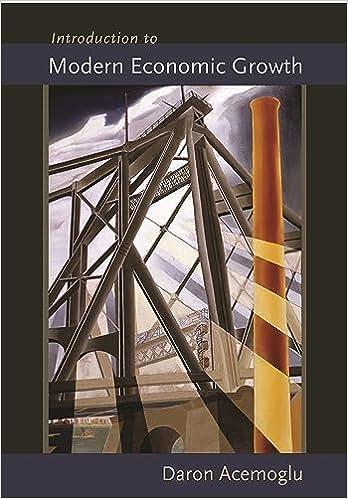Exercise 23.15. Consider an economy populated by rich agents who initially hold power, and 1
Question:
Exercise 23.15. Consider an economy populated by λ rich agents who initially hold power, and 1 − λ poor agents who are excluded from power, with λ < 1/2. All agents are infinitely lived and discount the future at the rate β. Each rich agent has income θ/λ while each poor agent has income (1 − θ) / (1 − λ) where θ>λ. The political system determines a linear tax rate, τ , the proceeds of which are redistributed lump-sum. Each agent can hide their money in an alternative non-taxable production technology, and in the process they lose a fraction φ of their income. There are no other costs of taxation. The poor can undertake a revolution, and if they do so, in all future periods, they obtain a fraction μ (t) of the total income of the society (i.e., an income of μ (t) /(1 − λ) per poor agent). The poor can not revolt against a democracy. The rich lose everything and receive zero payoff after a revolution. At the beginning of every period, the rich can also decide to extend the franchise to the poor, and this is irreversible. If the franchise is extended, the poor decide the tax rate in all future periods. (1) Define Markov perfect equilibria (MPE) of this game. (2) First suppose that μ (t) = μl at all times. Also assume that 0 < μl < 1 − θ. Show that in the MPE, there will be no taxation when the rich are in power, and tax rate will be τ = φ when the poor are in power. Show that in the MPE, there is no extension of the franchise and no taxation. (3) Suppose that μl ∈ (1 − θ,(1 − φ) (1 − θ) + φ (1 − λ)). Characterize the MPE in this case. Why is the restriction μl < (1 − φ) (1 − θ) + φ (1 − λ) necessary? (4) Now consider the non-Markovian equilibria of this game when μl > 1−θ. Construct an equilibrium where there is extension of the franchise along the equilibrium path. [Hint: first, to simplify, take β → 1, and then consider a strategy profile where the rich are always expected to set τ = 0 in the future; show that in this case the poor would undertake a revolution; for bonus points, also explain why the continuation strategy of τ = 0 by the rich in all future periods could be part of a subgame perfect equilibrium path]. Why is there extension of the franchise now? Can you construct a similar non-Markovian equilibrium when μl < 1 − θ? (5) Explain why the MPE led to different predictions than the non-Markovian equilibria. Which one is more satisfactory?
(6) Now suppose that μ (t) = μl with probability 1 − q, and μ (t) = μh with probability q, where μh > 1 − θ>μl . Construct a MPE where the rich extend the franchise, and from there on, a poor agent sets that tax rate. Be specific on the parameter values that are necessary for such an equilibrium to exist. Explain why extension of the franchise is useful for rich agents? (7) Now consider non-Markovian equilibria again. Suppose that the unique MPE has franchise extension. Can you construct a subgame perfect equilibrium, as β → 1, where there is no franchise extension? (8) Contrast the role of restricting strategies to be Markovian in the two cases above [Hint: why is this restriction ruling out franchise extension in the first case, while ensuring that franchise extension is the unique equilibrium in the second?].
Step by Step Answer:







